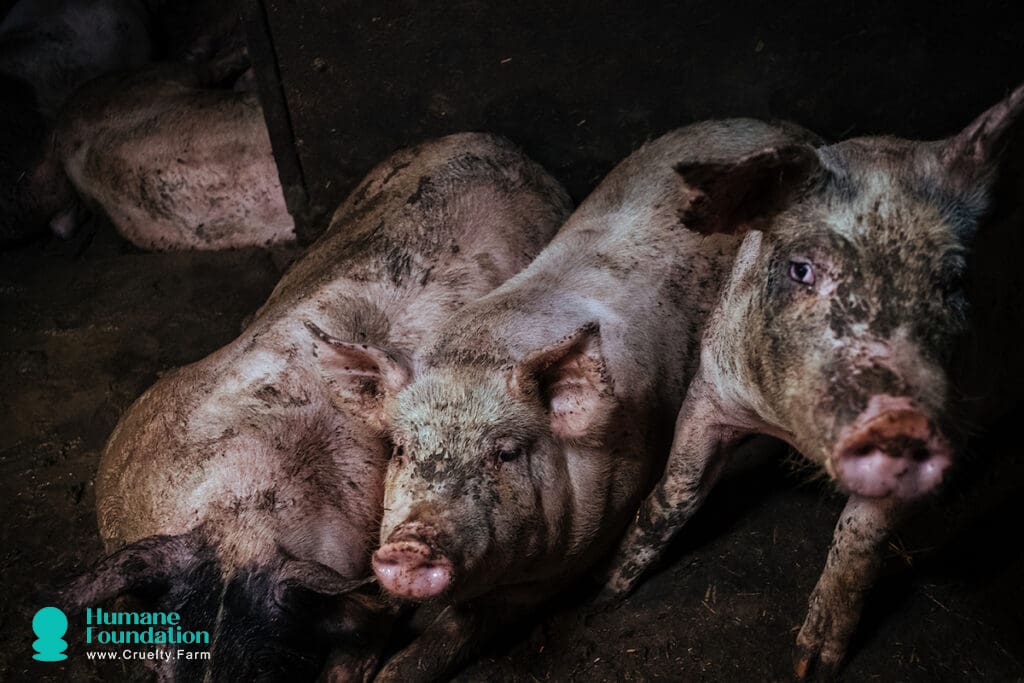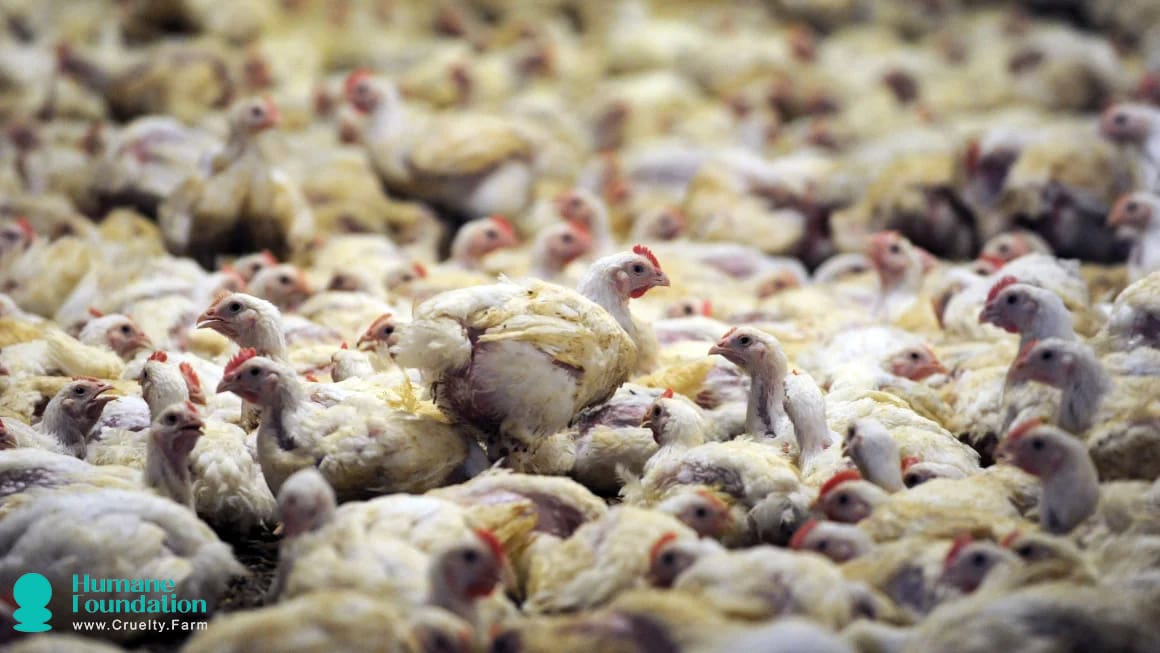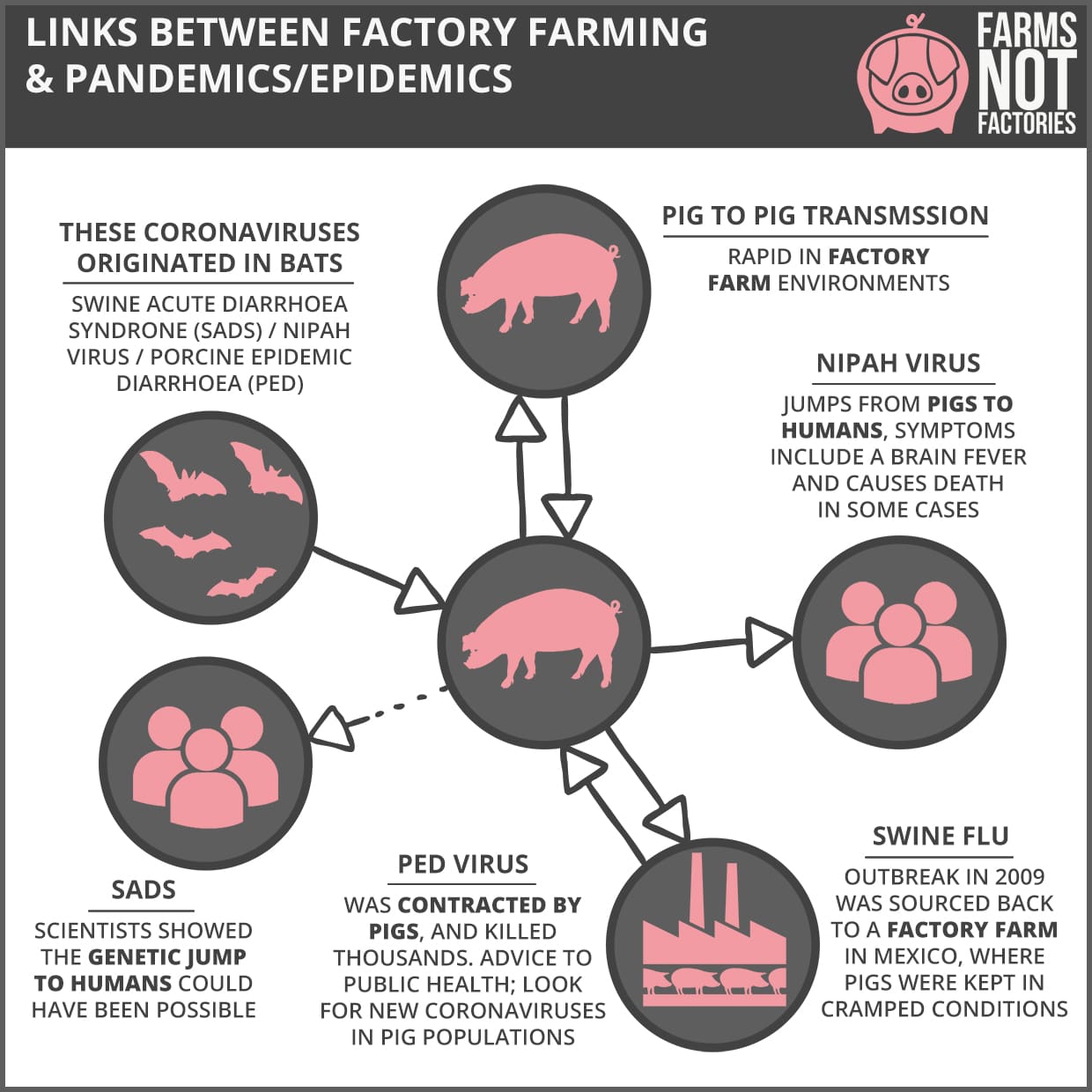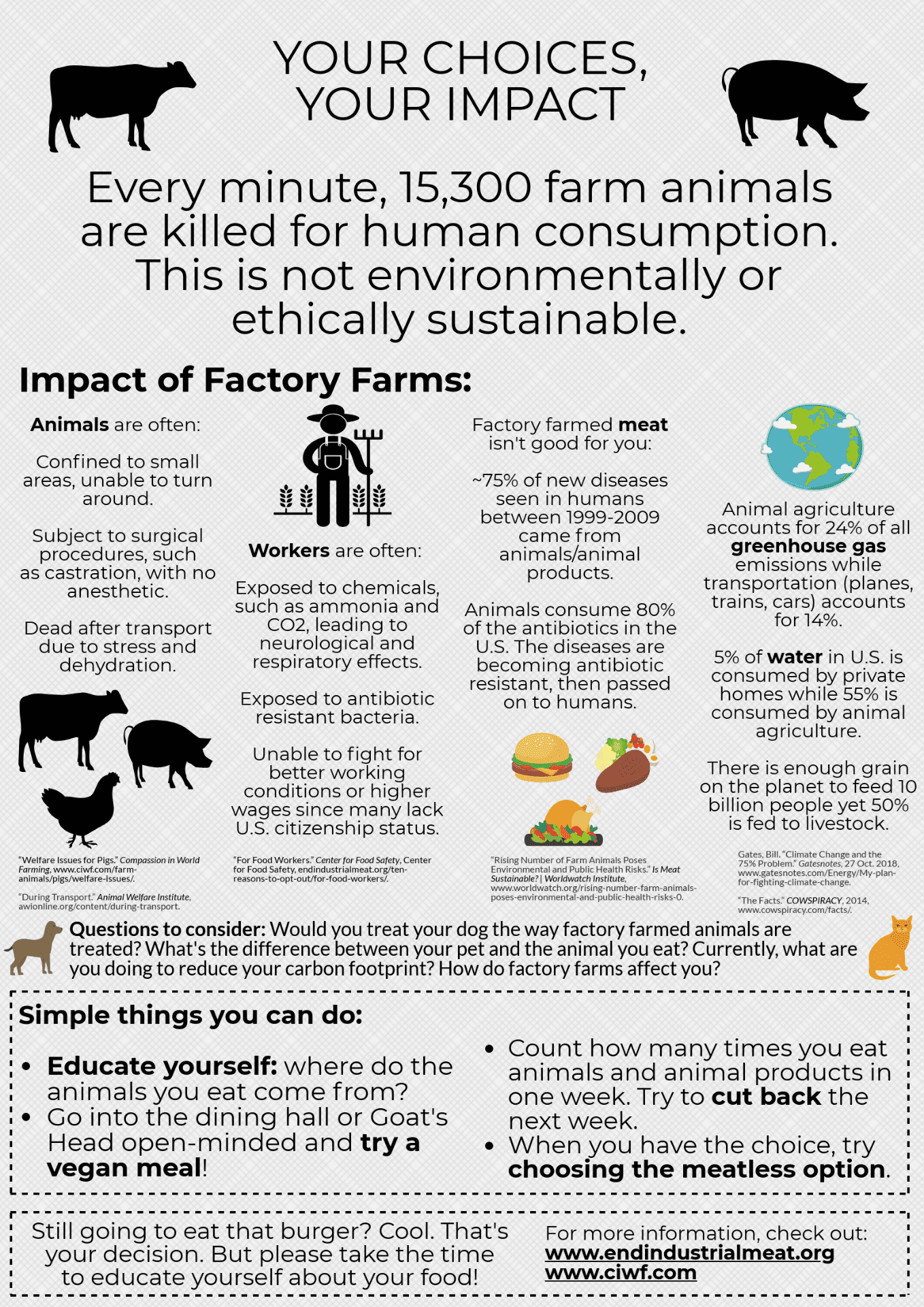Factory farming, the cornerstone of industrial meat and dairy production, is increasingly criticised for its devastating impact on both animal welfare and public health. Beyond the ethical issues surrounding the mistreatment of animals, these operations are hotspots for zoonotic diseases, antibiotic resistance, and foodborne illnesses—posing serious risks to human health. Overcrowded conditions, poor hygiene practices, and excessive antibiotic use not only harm animals but also create pathways for dangerous pathogens like Salmonella and E. coli to contaminate our food supply. This article examines the connection between animal cruelty in factory farms and its wide-ranging public health consequences while highlighting potential solutions to promote a safer, more compassionate approach to food production
The production of meat and other animal products in factory farms has become a contentious issue in recent years. While these facilities are designed to maximize efficiency and meet the ever-growing demand for animal-based products, there is a growing body of evidence linking them to public health concerns. The mistreatment of animals in these industrialized settings has raised ethical concerns, but what is often overlooked is the potential impact on human health. From the overuse of antibiotics to the spread of zoonotic diseases, the conditions in factory farms can have far-reaching consequences for public health. In this article, we will explore the link between animal cruelty and public health concerns in factory farms, examining the research and discussing potential solutions to this complex issue. By shedding light on this often overlooked aspect of factory farming, we hope to raise awareness and foster a more informed and ethical approach to animal production that takes into account both animal welfare and human health.
Impact of animal cruelty on health
The treatment of animals in factory farms and the resulting cruelty inflicted upon them has far-reaching implications for public health. When animals are subjected to inhumane conditions, overcrowding, and unsanitary environments, it creates a breeding ground for the spread of diseases. Many of these diseases can be transmitted to humans through direct contact with infected animals, consumption of contaminated meat or dairy products, or exposure to contaminated water sources. Additionally, the stress and trauma experienced by animals in these cruel conditions can compromise their immune systems, making them more susceptible to diseases. This not only poses a risk to the overall well-being of the animals but also increases the likelihood of zoonotic diseases, which can have severe consequences for human health.

Factory farming and food safety
In light of the significant public health concerns associated with animal cruelty in factory farms, it is crucial to address the issue of food safety as well. The intensive farming practices employed in these facilities often prioritize maximizing production output over ensuring the safety of the final food products. This can lead to contamination of meat, poultry, and dairy products with harmful bacteria such as Salmonella, E. coli, and Campylobacter. The unsanitary conditions and lack of proper hygiene measures contribute to the proliferation of these pathogens, posing a serious risk to consumers who consume these products. Moreover, the use of antibiotics as a preventative measure in factory farms can lead to the development of antibiotic-resistant bacteria, further complicating food safety issues. Strict regulations and enforcement of hygiene standards are imperative to alleviate these concerns and safeguard public health.

The role of antibiotics in farming
The use of antibiotics in farming plays a significant role in maintaining the health and productivity of livestock. Antibiotics are commonly administered to animals in factory farms to prevent and treat diseases that can spread quickly in crowded and unsanitary conditions. These drugs help to control bacterial infections and improve overall animal welfare. However, there are growing concerns about the overuse and misuse of antibiotics in farming practices. The routine administration of antibiotics as a preventative measure can contribute to the development of antibiotic-resistant bacteria, posing a threat to both animal and human health. It is essential for farmers and regulatory bodies to adopt responsible antibiotic use practices, including following withdrawal periods and implementing alternative disease prevention strategies, to mitigate the risks associated with antibiotic use in farming.
Unethical practices and disease outbreaks
The maintenance of animal welfare in factory farms is a critical aspect of responsible farming practices. However, there have been instances where unethical practices in these facilities have led to disease outbreaks with significant implications for public health. In some cases, overcrowded and unsanitary conditions in factory farms create a breeding ground for diseases to thrive and spread among animals. These diseases can then easily transmit to humans through direct contact or through the consumption of contaminated meat products. The lack of proper hygiene protocols and inadequate veterinary care in some factory farms further exacerbates the risk of disease outbreaks.

Environmental implications of factory farming
Factory farming practices have significant environmental implications that cannot be overlooked. The intensive confinement of animals in these operations leads to concentrated amounts of waste, which often ends up polluting nearby waterways and soil. The excessive use of antibiotics and hormones in factory farming also contributes to the growing problem of antibiotic resistance, posing risks to both human and animal health. Furthermore, the high demand for animal feed has resulted in deforestation and habitat destruction, as vast areas of land are cleared to grow crops for livestock. This destruction of natural habitats not only threatens biodiversity but also exacerbates climate change by releasing large amounts of greenhouse gases. It is imperative that we address these environmental concerns associated with factory farming in order to protect our planet and ensure a sustainable future for all.
Risks of consuming contaminated meat
Consuming contaminated meat poses significant risks to public health. In factory farms, where animals are often kept in cramped and unsanitary conditions, there is an increased likelihood of disease transmission. Bacterial pathogens such as Salmonella, E. coli, and Campylobacter can easily spread among animals, leading to contaminated meat products. These pathogens can cause serious illnesses in humans, including food poisoning and gastrointestinal infections. Additionally, the use of antibiotics in factory farming can contribute to the development of antibiotic-resistant bacteria, further complicating the treatment of infections. It is crucial that we address the issue of contaminated meat to safeguard public health and prevent the spread of foodborne illnesses.
Public health concerns in slaughterhouses
While factory farming has garnered attention for its cruel treatment of animals, there are also significant public health concerns associated with slaughterhouses. These concerns stem from the unhygienic conditions and practices found in many large-scale slaughterhouses. The crowded and stressful environment in these facilities, combined with the high-speed processing of animals, increases the risk of contamination and the spread of pathogens. Improper handling and processing of meat can lead to the presence of bacteria such as E. coli and Salmonella, posing a serious threat to consumer health. In addition, the excessive use of antibiotics in factory farming contributes to the development of antibiotic-resistant bacteria, further compromising public health.
⚫️⚫️⚫️
As we have seen, the mistreatment of animals in factory farms not only raises ethical concerns, but also poses significant risks to public health. As consumers, we can also make a difference by choosing to support ethical and sustainable farming practices. By working together, we can create a healthier and more compassionate world for both animals and humans.

FAQ
What are some of the main public health concerns associated with animal cruelty in factory farms?
Some of the main public health concerns associated with animal cruelty in factory farms include the spread of infectious diseases, antibiotic resistance, and contamination of food products. The overcrowded and unsanitary conditions in these farms create a breeding ground for pathogens such as E. coli and Salmonella, which can be transmitted to humans through the consumption of contaminated meat and dairy products. Additionally, the excessive use of antibiotics in factory farms contributes to the development of antibiotic-resistant bacteria, posing a serious threat to human health. Overall, animal cruelty in factory farms not only raises ethical concerns but also has significant implications for public health.
How does the mistreatment of animals in factory farms contribute to the spread of diseases and antibiotic resistance?
The mistreatment of animals in factory farms contributes to the spread of diseases and antibiotic resistance in several ways. Overcrowded and unsanitary conditions provide a breeding ground for pathogens, increasing the likelihood of disease transmission. The stress and weakened immune systems of animals in these conditions also make them more susceptible to infections. To control and prevent these diseases, factory farms often rely heavily on antibiotics, leading to the overuse and misuse of these drugs. This overuse promotes the development of antibiotic-resistant bacteria, which can then be transmitted to humans through the consumption of contaminated meat or through direct contact with farm workers.
Are there any specific illnesses or infections that can be directly linked to the conditions in factory farms?
Yes, there are several illnesses and infections that can be directly linked to the conditions in factory farms. One example is the spread of antibiotic-resistant bacteria, which can occur due to the overuse of antibiotics in animal agriculture. This can lead to infections in humans that are difficult to treat. Additionally, factory farms can contribute to the spread of zoonotic diseases, which are infections that can be transmitted between animals and humans. Examples include avian influenza (bird flu) and swine flu. The close confinement and unsanitary conditions in factory farms can facilitate the transmission and spread of these diseases.
What are the potential consequences for human health if the issue of animal cruelty in factory farms is not addressed?
If the issue of animal cruelty in factory farms is not addressed, there can be potential consequences for human health. Factory farms often engage in practices that can lead to the spread of diseases, such as overcrowding and unsanitary conditions. This can increase the risk of zoonotic diseases, which are transmitted from animals to humans. Additionally, the use of antibiotics in factory farms to promote growth and prevent infections can contribute to antibiotic resistance, making it harder to treat bacterial infections in humans. Furthermore, the psychological impact of allowing animal cruelty to continue unchecked can also have negative effects on society’s overall well-being.
How can society work towards improving animal welfare in factory farms in order to protect public health?
Society can work towards improving animal welfare in factory farms to protect public health by implementing stricter regulations and enforcement measures. This can include setting higher standards for animal living conditions, reducing overcrowding and stress, improving veterinary care, and promoting the use of alternative farming methods that prioritize animal health and well-being. Additionally, public education and awareness campaigns can help raise consciousness about the link between animal welfare and public health, encouraging consumers to support ethically raised and sustainable food options. Collaboration between government, industry, and consumer advocacy groups is vital in driving meaningful change and ensuring the protection of both animals and public health.



